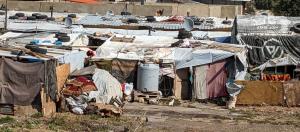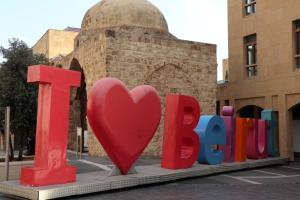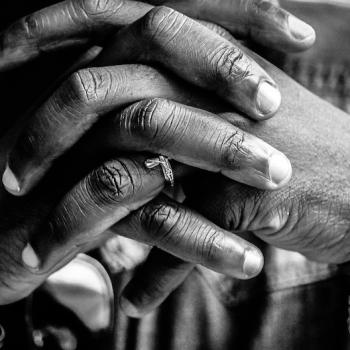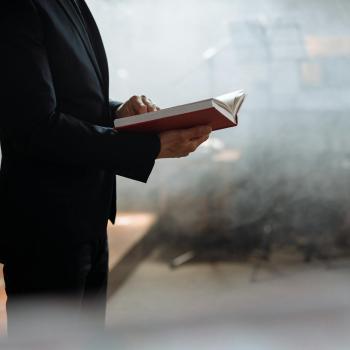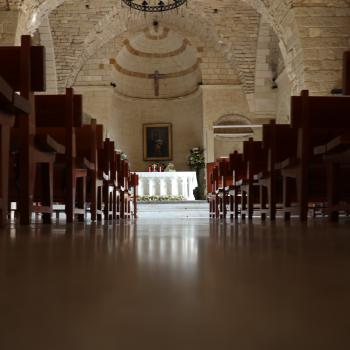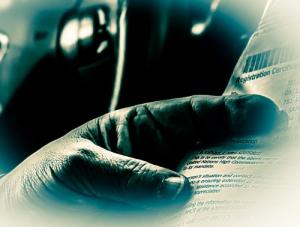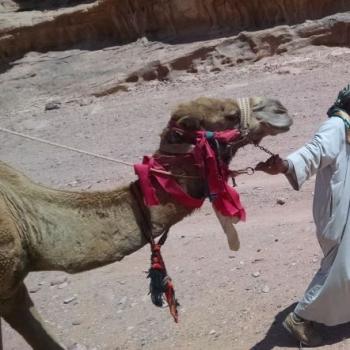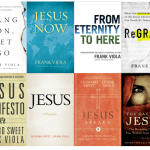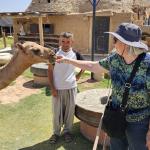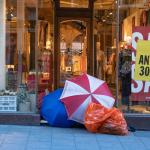There is a crisis brewing right in the very heart of the Middle East. While we’ve been distracted by petty politics around the world and a yearlong war in Ukraine, Lebanon is teetering.
While my trip to Lebanon last year was in no way comprehensive, I learned enough to realize that the wall which holds Humpty Dumpty is swaying. Don’t be surprised when it falls. And it’s going to take the world body to help put it back together unless the collapse can be reversed.
Home port for the Empires
Beirut has been inhabited for more than 5,000 years, and was one of Phoenicia’s most prominent city-states, making it one of the oldest in the world. Flipping through the pages of its history brings mystery and intrigue. Many empires have claimed title because of their rich natural resources and port access. Canaanites, Phoenicians, Persians, Crusaders, and the Ottoman Empire – among others – have all planted a flag here.
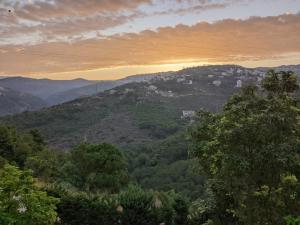
From here wars have been launched. Battles have been won and lost. Lives have forever been changed because of this city that sits on the Mediterranean.
Syria is a crescent moon, covering the North and Eastern borders. Israel lies to the South, with map lines drawn in blood in the sand. The Mediterranean lies to the West, a traditional escape from the Levant and an invitation to the traders of the world. But a horrific port explosion two years ago has ceremoniously and economically boxed in this population of six million.
An uneasy alliance
Modern-day Lebanon was carved out of the Ottoman Empire, initially creating a home for Maronite Christians who were escaping persecution.
The mosaic of faiths is officially comprised of 18 different religious components, including four Muslim sects, 12 Christian sects, Druze and Jewish populations.
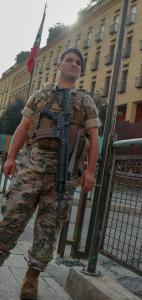
To create some sort of balance, under the terms of an agreement known as the National Pact between the various political and religious leaders of Lebanon, the president of the country must be a Maronite, the Prime Minister must be a Sunnite, and the Speaker of Parliament must be a Shiite.
Today, the traditional Christians coexist with large Sunni and Shite Muslim populations, an uneasy alliance in uncertain times. The system doesn’t really create equity, instead, it seems to foster distrust and division.
If you aren’t aware, these two major Muslim sects – the Shiites and Sunni – have long and often bitter differences with each other, made manifest in the protracted war between Iran and Iraq in the 80s and a hundred political pushing matches every year around the world.
And the Sunni in Lebanon are ideologically and politically driven by Hezbollah, whose ideological goals are Israeli resistance, establishing an Islamic state in Lebanon, and allegiance to Iran’s supreme leadership.
Christians in the country are represented by the Lebanese Forces party and seem to be more ethnic and military focused political force, rather than a moral influence.
The Uncertainty
In 2019, unemployment, government corruption, and sanitation, water, and electricity uncertainty had the population on edge. Then the government planned a series of taxes on gasoline and tobacco. But what really triggered the public was a tax on WhatsApp, the popular VOIP phone app.
On October 17, 150 protestors blocked streets in Beruit and ended up roiling the country with violence, fires, and destruction. Eventually, the Prime Minister resigned.
But the issues only continued, often unresolved. The world suddenly paid attention to the 2020 Beirut Port Explosion, which leveled one of the largest ports in the Middle East, causing 218 deaths, 7,000 injuries, and $15 billion in damage. 300,000 were left homeless.
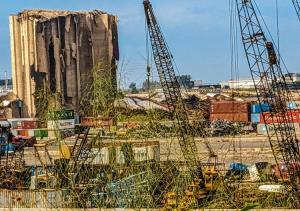
The cause was not terrorism as some initially thought, but the improper storage of 2750 tons of ammonium nitrate. Another government failure.
But at this point, the country was reeling from COVID-19.
With a sigh of resignation, the differing parties resigned to the collective impacts of the unfinished revolution, the pandemic, and the port explosion. The collective and individual retreat seems to be for mere survival’s sake. But the struggle was never really resolved.
The Economy
The country’s issues are continuing, hampered by rising inflation that is nearing 200 percent over the last year and climbing every single week. People have no idea what goods cost or what to expect. And meanwhile, many fixed incomes including civil workers, teachers, and the military (!!) have not increased with the rising inflation costs.
Once pegged at 1,500 against the US currency, the Lebanese lira has now lost 97 percent of its value after the economic collapse in 2019 caused by decades of financial corruption and mismanagement. The government decided to default on its foreign debt in March 2020 which thwarted any future interest in assistance from the world community. Just last week, it almost lost its seat in the UN due to past-due payments.
Lebanese banks neither give loans nor do they take new deposits. They return to previous depositors a small fraction of their savings in U.S. Dollars at an exchange rate that is 1/30 lower than the market value. This Lebanese liquidity crisis creates continual uncertainty in pricing and everyday expenses.
Savings are held hostage
There are people who cannot purchase food, rent or utilities, not because they don’t have money, but because they cannot access their funds.
When I checked into my hotel, the front desk informed me of the nearest black-market exchange, discouraging me from using ATMs or banks for my dollar-to-dinar exchange. The government has established a laughable rate of exchange and frozen assets in banks. So, the money supply is stable, but the purchasing power is diminished. More than 80 percent of the population lives below the poverty line.
Increasingly, there are brazen hold-ups at banks, but not in the traditional sense. It’s usually an account holder who won’t leave the bank without their saved money, which cannot be withdrawn per government decree.
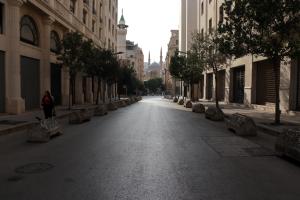
The Electrical Grid
While the government is in tatters and the economy creaky, there is one thing that absolutely unifies the sector of the population – an uncertain power grid.
Because of the liquidity issues, the Lebanese pound lost more than 90% of its value. The Government couldn’t pay for fuel imports and thus the power plants were unable to run at capacity.
Privately owned diesel-powered backup generators filled the gap, creating private networks of power supplies to cool refrigerators and charge phones for homes and businesses. But uncertain diesel supplies put these suppliers at risk as well.
And that affects water supplies. Lebanon has snow-filled mountains that feed 15 rivers and over two thousand streams. But a lack of electricity also means sewer systems and water filtration systems are not always working, leading to a comingling of waste and fresh water. This leads to increased illnesses, especially among refugee populations.
The Refugees
If it weren’t enough to have your own problems, refugees are pouring in from surrounding countries.
The UN estimates there are 1.5 million Syrian refugees who continue to cross the border because of the ongoing war and division. Another 850,000 refugees from Ethiopia, Iraq, Sudan, and other countries have run from their own deteriorating socio-economic situations.
Nine out of 10 households are in extreme poverty, facing hyperinflation that spirals the cost of all ready hard to afford food, electricity, and health services. Naturally, there is competition between a struggling Lebanese population and those who come in from the outside, competing for limited jobs and resources.
The makeshift refugee camps are as far as the eye can see
The world community has tried to figure out a solution that is often thwarted by violence, sectarian divisions, and corruption.
Pulling out threads of a frayed garment, these refugees escaped to a country that is ill-equipped to provide relief. I saw it with my own two eyes and what I saw was not good.
There’s a palpable tension in the air as you walk through the neighborhoods and all you must do is look around and see the different races and ethnic backgrounds of the people realizing that there are a variety of economics and situations.
The Help
NGOs from around the world have come here of every sort to try to help and to give relief. But it’s so complicated here that no one quite knows what to do. And it’s very difficult to take a side because unlike many other situations, there’s a good and bad left and right of black and white but not here. This is far more complicated. I’ve dealt with several ministries within the country. Watching how they interact and respond to the emergency.
This often involves education because many refugees are not eligible to attend state schools. Or if they do go to state schools, it’s a substandard education. And they’re not trusted by the locals since their system has been swamped straining every resource.
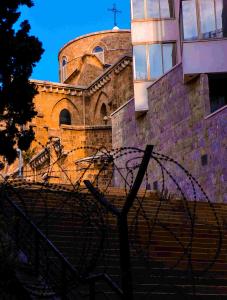
The Solution
Many of them are measuring the hole the country finds itself in and to keep others from digging deeper. Everyone is clawing at the sides of the hole they are in, trying to get out. But they are only making it broader and deeper with no apparent way out.
These NGOs and ministries can’t fix the economics. They can’t solve the border crisis. They don’t know how to sort out the refugee issue, but what they do know is to give holistic love to people.
Lebanon’s recent history is fraught with division and discord. And today the country sits at a crossroads of existence. It’s one of the most complicated places I’ve ever experienced.
I only spent a limited time in Lebanon, so these words I write don’t come from any deep well of experience or knowledge. But even those who have spent a lifetime here don’t understand what’s happening. It’s a mess with no clear path out.


